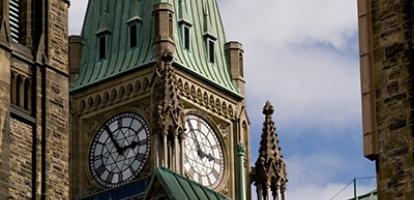On Nov. 30, the B.C. government launched the world’s first publicly accessible registry of beneficial ownership of land, requiring disclosure of the people behind the companies, trusts and partnerships that own B.C. property (and who therefore benefit from such ownership). For implementing this new weapon to combat money laundering, the B.C. government deserves praise and thanks.
Unfortunately, in its present condition, the registry will do little to deter the world’s criminals from laundering their dirty money in B.C. real estate. That’s because it’s missing the most important element — verification of the identity of the beneficial owners listed on the registry. To understand why “verification of identity” is essential to the registry’s success, it’s helpful to understand two things: why it’s so difficult to catch money launderers and how a properly constructed registry of beneficial ownership will significantly increase our chances of doing so.
Money laundering is a derivative crime. It’s the process by which a person disguises the origin of illegally obtained proceeds so they appear to have come from a legitimate source. Generally, no money laundering offence is established until the proceeds, or the assets purchased with the proceeds, are proven to be from a crime (e.g., drug trafficking or political corruption). Such proof is extremely difficult because the money laundering almost always occurs at a different time and place than the original crime and often involves different actors.
In an overwhelming majority of cases, the police not only don’t know who committed the money-laundering crime or where; they don’t even know a crime was committed at all. That problem becomes even greater when the original crime occurred on the other side of the world and the money was transferred through numerous shell companies in multiple tax havens before being invested in B.C. real estate.
Thus, the beauty of a properly constructed beneficial-ownership registry is that it effectively creates a new crime — false declaration of beneficial ownership — that is much easier to prove and prosecute. And the threat of prosecution can be used against false declarants to obtain evidence needed to more effectively investigate and prosecute both money-launderers and the perpetrators of the original crimes.
In other words, a public registry is a game-changer in the war against money laundering.
So, what does a properly constructed registry look like? First, it should be built on the premise that crooks lie. A drug trafficker or corrupt politician who has laundered money through multiple tax havens and then purchased 17 houses in Vancouver is not going to say, “Yep, it’s me.” He’s going to lie. Second, he’ll likely lie in a way that minimizes the risk of anyone connecting him to those Vancouver houses.
At the moment, the new B.C. registry has no identity-verification system: there’s no requirement that registry officials independently verify all identification information filed on the registry. Filers are not even required to submit copies of government-issued photo ID, such as passports or driver’s licences. Which means criminals can minimize their risk of detection by simply inventing fictional beneficial owners. The chances of getting caught are minimal because no one at the B.C. registry will be actively verifying the identification information.
But if the registry were to implement a proper verification system, that would create a baseline of evidence that the declared beneficial owner actually existed and was who he said he was. That would force criminals to use actual persons to falsely declare themselves as beneficial owners of the houses. Those persons likely would be someone the criminal knows and trusts, such as a relative or a close friend or business associate. After all, picking the wrong person might be the difference between a life of wealth and a life behind bars.
The likely closeness between the criminals and their falsely declared beneficial owners would create a new problem for both of them for the simple reason that closely connected accomplices increase the probability of detection. That forced shift from fictive persons to real persons with whom a criminal had a close relationship would make it much easier for police to connect falsely registered frontmen with the drug traffickers, human traffickers and corrupt politicians laundering their dirty money via B.C. real estate.
In addition, placing the names of beneficial owners on a public registry would greatly increase the number of persons around the world who could combine their local knowledge with the registry’s identity information to discover and reveal those connections. From Alexei Navalny in Russia to the pro-democracy camp in Hong Kong, from investigative journalists in Pakistan, America, Nigeria and Canada to the merchants in Egypt and Brazil who are sick of political shakedowns, the B.C. public registry provides a promising new weapon to combat money laundering in B.C. real estate and fight crime and corruption around the world.
But first it needs an identity-verification system.
Published in the Financial Post
Kevin Comeau is a corporate lawyer and a member of Transparency International Canada’s Working Group on Beneficial Ownership Transparency who has written on this issue for the C.D. Howe Institute.





